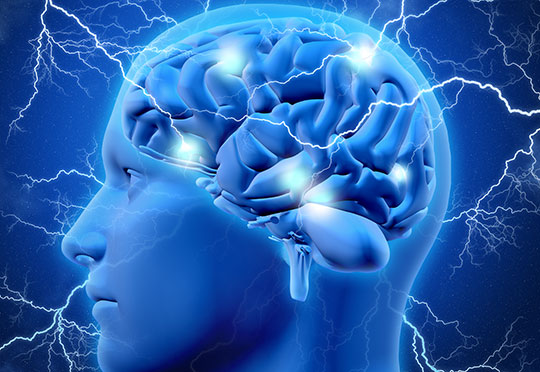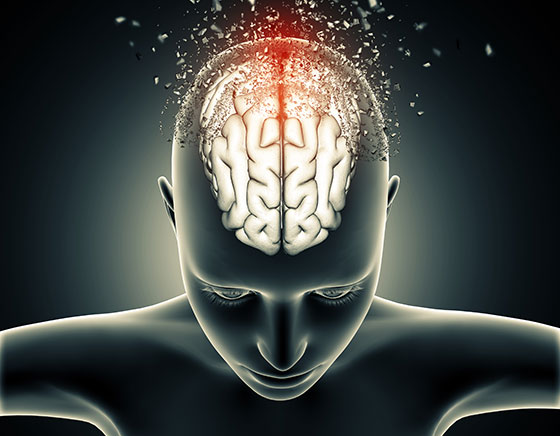Over the years, public perception of cannabis has shifted from predominantly recreational use and counterculture towards recognizing its health benefits.
This shift is not merely anecdotal – research and medical understanding support the perception as the stigma surrounding cannabis diminishes, more people are open to exploring the health benefits of cannabis.
The legalization of medical cannabis in certain regions, endorsements from healthcare professionals, and the rise of patient advocacy have all played roles in changing the collective perception of marijuana.
Chronic Pain Relief
Cannabis as an Analgesic: Pain-relieving properties
Cannabis has emerged as a promising analgesic, offering relief to individuals grappling with various forms of chronic pain. The therapeutic effects of the Cannabis plant in reducing pain are a result of its interaction with the endocannabinoid system, which is a complex network of receptors and neurotransmitters within the human body. Cannabinoids, specifically THC and CBD, play an important role in this process by influencing pain perception and modulation. THC, known for its psychoactive properties, binds with CB1 receptors that are mainly present in the central nervous system.
CBD, on the other hand, is a non-psychoactive compound that interacts with CB2 receptors in peripheral tissues and immune cells. These two compounds work together synergistically to offer relief for various types of pain, ranging from neuropathic discomfort to inflammatory pain. Ongoing research is constantly uncovering new information about how cannabis compounds interact with the body. These studies are shedding light on the potential of cannabis to revolutionize pain management strategies and offer respite to individuals with chronic discomfort.

Real-life Stories: How Cannabis Helped Individuals Manage Chronic Pain
Charlotte Figi’s Story
One of the most widely-recognized stories is that of Charlotte Figi. Charlotte was a young girl who suffered from a severe form of epilepsy known as Dravet syndrome and experienced debilitating seizures from a very early age. With conventional treatments providing little relief, her parents turned to a high-CBD strain of cannabis, which became known as “Charlotte’s Web.” The results were astounding, with Charlotte’s seizures significantly reducing in frequency and intensity. Her story played a vital role in changing the public perception of cannabis, as it accelerated the acceptance of medical cannabis, especially for pediatric conditions.
The Journey of Cathy Jordan
Cathy Jordan was diagnosed with Amyotrophic Lateral Sclerosis (ALS) in the late 1980s. She found herself in a race against time to manage the progressive and debilitating symptoms of her condition. Cannabis became a lifeline for Cathy, offering relief from muscle spasms, pain, and the overall challenges posed by ALS. Despite legal hurdles, Cathy became a vocal advocate for medical cannabis, sharing her journey to highlight its therapeutic benefits for those facing similar battles. Her story showcases the potential of cannabis to enhance the quality of life for individuals grappling with neurodegenerative disorders.

Anti-Inflammatory Benefits
The Role of Cannabis in Reducing Inflammation
CBD has emerged as a potent anti-inflammatory agent. It exerts its effects through various mechanisms-inhibiting cytokine production and regulating immune cell activity. Research suggests that cannabis can be effective in managing conditions marked by chronic inflammation. Conditions include ailments like arthritis, inflammatory bowel diseases, and autoimmune disorders.
The therapeutic potential of cannabis in tempering inflammatory responses continues to be an area of exploration. Cannabis extracts offer a promising avenue for those seeking alternatives to conventional anti-inflammatory treatments.
Scientific Evidence: Studies Supporting Cannabis for Inflammatory Conditions
Numerous scientific studies have provided compelling evidence supporting the use of cannabis for inflammatory conditions. A notable study published in the journal “Biochemical Pharmacology” (2008) explored the anti-inflammatory properties of cannabidiol (CBD). The research demonstrated that CBD significantly reduced pro-inflammatory cytokines and chemokines in rodents. Future tests might solidify its potential as a novel anti-inflammatory agent. Another study, published in “PLoS ONE” (2011), investigated the impact of cannabinoids on inflammatory bowel disease (IBD). Researchers found that cannabinoids exerted anti-inflammatory effects in the gut. They can offer therapeutic benefits for individuals with conditions like Crohn’s disease and ulcerative colitis. Additionally, a meta-analysis published in “The European Journal of Pharmacology” (2014) reviewed several studies. It concluded that cannabinoids possess anti-inflammatory effects across various models, supporting their potential as a treatment for inflammatory conditions.
Neurological Ailments and Cannabis
Cannabis and Epilepsy: Examining the Promising Results
The exploration of cannabis in the context of epilepsy has shown promising results, sparking considerable interest within the medical community. Notably, the compound cannabidiol (CBD) has significant potential in managing epilepsy. It has shown promise in cases where traditional treatments have fallen short.
Research, including clinical trials such as those conducted by the Epilepsy Foundation, indicates that CBD can reduce the frequency and severity of seizures in individuals with epilepsy. One landmark study published in “The New England Journal of Medicine” (2017) reported that a CBD-based medication called Epidiolex significantly reduced seizures in patients with Dravet syndrome and Lennox-Gastaut syndrome.
These findings have led to the approval of Epidiolex by regulatory authorities in various countries for the treatment of certain forms of epilepsy.


Multiple Sclerosis and Beyond: How Cannabis is Making Strides in Neurological Care
In the realm of neurological care, cannabis has been making notable strides, particularly in the management of conditions like Multiple Sclerosis (MS) and beyond. Multiple studies and clinical trials have investigated the potential of cannabinoids in alleviating the symptoms associated with neurological disorders.
MS is a chronic autoimmune disease affecting the central nervous system. Cannabis has shown promise in reducing muscle spasms, alleviating pain, and improving overall quality of life. Moreover, the neuroprotective properties of cannabinoids have prompted exploration in other neurological conditions, including Parkinson’s disease and Alzheimer’s.
Research has shown that cannabis can offer relief for neurodegenerative ailments. While further investigation is needed, the strides made in understanding the neuroprotective and anti-inflammatory effects of cannabis signify a promising avenue for innovative approaches to neurological care. We might be looking at a future where cannabis-derived treatments could play a role in enhancing the well-being of those facing complex neurological challenges.
Anxiety and Stress Management
Cannabis has received attention for its calming effects on mental health. We might have a new perspective on the interplay between cannabinoids and psychological well-being. Cannabidiol (CBD), a non-psychoactive compound found in cannabis, is recognized for its anxiolytic properties.
Research suggests that CBD interacts with serotonin receptors in the brain, influencing mood regulation and stress response. Numerous studies, such as those published in the “Journal of Clinical Psychiatry” and “Neuropsychopharmacology,” have explored the potential of CBD in mitigating symptoms of anxiety and stress disorders.
Individuals dealing with conditions like generalized anxiety disorder or post-traumatic stress disorder have reported positive outcomes with CBD-based treatments. The psychoactive component tetrahydrocannabinol (THC) can have varying effects on anxiety and mental health. Careful consideration of THC-to-CBD ratios with individual responses is the key to using cannabis for anxiety disorders.


Hypertension and Cannabis
Hypertension is a common condition often associated with various health risks. Preliminary research suggests that cannabinoids found in cannabis, particularly cannabidiol (CBD), could contribute to blood pressure regulation.
A study published in the “Journal of Clinical Investigation,” has indicated that CBD may reduce resting blood pressure and the blood pressure response to stress. However, it’s essential to note that the relationship between cannabis and hypertension is complex. Tetrahydrocannabinol (THC), another cannabinoid, may have adverse effects and increase blood pressure!
As such, individuals with hypertension or those considering using cannabis for blood pressure management should consult with healthcare professionals. It would ensure a personalized and informed approach, keeping their specific health conditions in mind.
Sleep Disorders and Cannabis
Insomnia is a common sleep disorder where people find it hard to go to sleep or stay asleep. Cannabis has gained attention for its potential role in addressing this. The compounds in cannabis (CBD and THC) interact with the endocannabinoid system. They influence various physiological processes, including sleep-wake cycles.
Some users report that strains with higher levels of CBD may have calming effects. CBD eases anxiety and promotes relaxation – in other words, it helps you sleep! However, cannabis can have varying effects on people, and there is a need for more extensive research to understand its potential long-term impacts on sleep patterns.
As with any sleep aid, individuals considering cannabis for insomnia should approach it cautiously, consulting healthcare professionals to ensure it aligns with their health circumstances and preferences.


Cannabis Products for Health
In the diverse landscape of cannabis products, users navigate a spectrum of options to address various health concerns. CBD oil emerges as a versatile remedy, interacting with the body’s endocannabinoid system to offer relief from conditions like chronic pain and anxiety.
Edibles and tinctures provide alternative consumption methods, offering discreet and precise dosing. Edibles are available in a variety of flavors.
Tailoring treatment involves selecting the right cannabis strain and considering factors such as indica or sativa dominance for issues ranging from pain management to mood enhancement. CBD-to-THC ratios and strain-specific benefits also need to be considered. These choices empower users to personalize their cannabis experience, exploring diverse avenues for holistic well-being.
A. CBD Oil: A Versatile Remedy for Various Ailments
Holistic Wellness:
CBD oil is renowned for its potential to promote holistic wellness by interacting with the endocannabinoid system.
Pain Management:
Thanks to its analgesic properties, CBD oil may offer relief from chronic pain conditions.
Anxiety and Stress:
CBD oil is a natural remedy for anxiety and stress-related disorders.
Anti-Inflammatory Effects:
Its anti-inflammatory properties make CBD oil a candidate for managing inflammatory ailments.
B. Edibles and Tinctures: Alternative Methods of Consumption
Discreet Consumption:
Edibles and tinctures provide a discreet and inconspicuous way to consume cannabis.
Longer Lasting Effects:
Edibles, in particular, may have a prolonged effect compared to smoking or vaping.
Precise Dosage:
Tinctures allow for precise dosage control, enabling users to fine-tune their intake according to their needs.
Variety of Flavors:
Edibles come in various flavors, enhancing the overall consumption experience.
C. Tailoring Treatment: Choosing the Right Cannabis Strain for Specific Health Issues
Indica vs. Sativa:
Understanding the differences between indica and sativa strains helps to tailor treatment.
Cannabinoid Ratios:
Strains with specific cannabinoid ratios (e.g., THC: CBD) can be chosen based on health needs.
Pain-Specific Strains:
Some strains are known for their effectiveness in managing chronic pain conditions.
Mood and Relaxation:
Tailoring strains based on desired effects, such as relaxation or mood enhancement, allows for a personalized approach to treatment.
Navigating Risks and Responsible Use
Navigating the risks associated with cannabis use requires a balanced understanding of potential side effects. Adherence to responsible consumption guidelines is vital. Diligently consider potential interactions with medications to promote informed and safe use.

A. Understanding Potential Side Effects
Psychoactive Effects:
Acknowledge the potential psychoactive effects of THC, including altered perception and cognitive impairment.
Dry Mouth and Eyes:
Common side effects like dry mouth and eyes are temporary but prevalent.
Paranoia or Anxiety:
Some individuals may experience heightened anxiety or paranoia, particularly with high-THC strains.
Appetite Changes:
Cannabis may affect appetite, leading to increased or decreased food intake.
B. Dos and Don’ts: Guidelines for Responsible Cannabis
Start Low, Go Slow:
Begin with a low dosage and gradually increase to assess tolerance.
Awareness of Limits:
Recognize personal limits and avoid exceeding them to prevent adverse effects.
Avoid Driving:
Refrain from driving or operating machinery under the influence of cannabis.
Safe Storage:
Keep cannabis products out of reach of children and pets to prevent accidental ingestion.
C. Interactions with Medications: Important Considerations
Consult with Healthcare Professionals:
Seek advice from healthcare providers, especially if using cannabis alongside prescribed medications.
Potential Interactions:
Understand potential interactions between cannabis and medications, including sedatives, antidepressants, and anticoagulants.
Monitoring Effects:
Regularly monitor how cannabis may impact medication efficacy or contribute to side effects.
Informing Healthcare Providers:
Keep healthcare providers informed about cannabis use to ensure comprehensive and safe medical care.
Conclusion
In the evolution of public perception, cannabis has transformed from a recreational substance to a therapeutic agent backed by scientific progress and verified research. Cannabis showcases remarkable potential across various health domains. Its analgesic properties target chronic pain for everyday use. Poignant real-life stories of individuals like Charlotte Figi and Cathy Jordan have paved the way for the acceptance of cannabis-based therapies. When these individuals found relief from epilepsy and neurodegenerative disorders with cannabis, it gained popularity in medicine.
The benefits of cannabis include its anti-inflammatory properties that offer relief for conditions such as arthritis. It can also help with neurological conditions like Multiple Sclerosis. The calming effects it has on mental health make it a potential hypertension reliever and could also help manage sleep disorders such as insomnia. There are different cannabis products available, including CBD oil, edibles, and tinctures, which cater to individual preferences. It is important to follow guidelines on responsible use and medication considerations to ensure a balanced approach.
The information provided is not a substitute for professional medical advice, diagnosis, or treatment. Consult with a qualified healthcare professional for personalized advice based on your medical condition.




